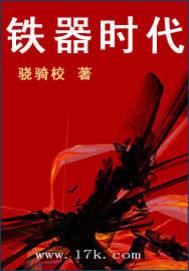邓小 平时代-第64章
按键盘上方向键 ← 或 → 可快速上下翻页,按键盘上的 Enter 键可回到本书目录页,按键盘上方向键 ↑ 可回到本页顶部!
————未阅读完?加入书签已便下次继续阅读!
'9…5'Nayan Chandra; Brother Enemy: The War after the War (San Diego: Harcourt
Brace Jovanovich; 1986); p。 259。
'9…6'Robert S。 Ross; Indochina Tangle: China's Vietnam Policy; 1975…1979 (New York:
Columbia University Press; 1988); p。 67; Jian Chen; 〃China and the First Indo…China War;
1950…54;〃 The China Quarterly; no。 133 (March 1993): 85…110。
'9…7'Henry J。 Kenney; 〃Vietnamese Perceptions of the 1979 War with China;〃 in Mark A。
Ryan; David M。 Finklestein; and Michael A。 McDevitt; eds。; Chinese Warfighting: The PLA
Experience Since 1949 (Armonk; N。 Y。: M。 E。 Sharpe; 2003); p。 218。
'9…8'外交部档案馆编:《伟人的足迹:邓小平外交活动大事记》(北京:世界知识出版社,1998),
1965 年 4 月 18、19、22、23 日。
'9…9'Kuan Yew Lee; From Third World to First (New York: HarperCollins; 2000); p。 661。
整个援助计划可参见军事科学院军事历史研究所:《中华人民共和国军事史要》(北京:军事科学出版社,
2005),页 549…570。美国的文献普遍低估了越战期间中国派出的军队数量。例如一个估计是五万人。
见 Kenny; 〃Vietnamese Perceptions of the 1979 War with China;〃 p。 217; Donald S。 Zagoria
and Sheldon W。 Simon; 〃Soviet Policy in Southeast Asia;〃 in Zagoria; ed。; Soviet Policy in East
Asia (New Haven; Conn。: Yale University Press; 1982); pp。 153…173。
'9…10'Chen Jian; Mao's China and the Cold War (Chapel Hill: University of North
Carolina Press; 2001); pp。 221…229。
'9…11'William J。 Duiker; Ho Chi Minh (New York: Hyperion; 2000); pp。 541; 550。
'9…12'Chen; Mao's China and the Cold War; pp。 229…237。
'9…13'M。 Taylor Fravel; Strong Borders; Secure Nation: Cooperation and Conflict in
China's Territorial Disputes (Princeton; N。J。: Princeton University Press; 2008); pp。 276…287。
'9…14'Chanda; Brother Enemy; pp。 13…18; Ross; The Indochina Tangle; pp。 64…65。
'9…15'《伟人的足迹:邓小平外交外活动大事记》,1975 年 9 月 22…25 日。
'9…16'《伟人的足迹:邓小平外交外活动大事记》,1975 年 9 月 25 日。
'9…17'Ross; The Indochina Tangle; pp。 67…68。
'9…18'Chandra; Brother Enemy; pp。 134…135; Kenney; 〃Vietnamese Perceptions of the
1979 War with China;〃 pp。 26…28; 222…223; Ross; The Indochina Tangle; p。 67。
'9…19'Chanda; Brother Enemy; p。 28。
'9…20'Ross; Indochina Tangle; p。 75。
'9…21'例如可参见 1976 年 5 月李光耀与华国锋长达七小时的谈话纪录:Lee; From Third World
to First; pp。 642…650。
'9…22'Chanda; Brother Enemy; pp。 27…28。
'9…23'Ross; p。 68。
'9…24'Ross; p。 127; Chanda; Brother Enemy; pp。 88…89。
'9…25'Ross; The Indochina Tangle; pp。 128…129。
'9…26'Chanda; Brother Enemy; pp。 187…188; 240…245。
'9…27'Ross; The Indochna Tangle; pp。 130…131。
'9…28'Chanda; Brother Enemy; p。 189。
'9…29'Lee; From Third World to First; p。 661。
'9…30'范宏伟:〈周恩来与缅甸华侨〉,《当代中国史研究》,2008 年第 1 期,页 31…37。
'9…31'参见 Wayne Bert; 〃Chinese Policy toward Burma and Indonesia: A Post…Mao
Perspective;〃 Asian Survey 25; no。 9 (Sept。 1985): 963…980; Bertil Lintner; 〃Burma and Its
Neighbors;〃 in Surjit Mansingh; ed。; Indian and Chinese Foreign Policies in Comparative
Perspective (New Delhi: Radiant Publishers; 1998);田曾佩:《改革开放以来的中国外交》(北京:
世界知识出版社,2005 年),页 70…72;《伟人的足迹:邓小平外交活动大事记》,1978 年 1 月 26…31
日;W。 R。 Heaton; 〃China and Southeast Asian Communist Movements: The Decline of Dual
Track Diplomacy;〃in Asian Survey 22; no。 8 (Aug。 1982): 779…800。
'9…32'Xinhua News Service; February 4; 6; 1978。
'9…33'Xinhua News Service; February 6; 1978。
'9…34'中共中央文献研究室编:《邓小平年谱(1975…1997)》(上下册)(北京:中央文献出
版社,2004),1975 年 4 月 18…26 日,页 36…37。
'9…35'Don Oberdorfer; The Two Koreas (New York: Basic Books; 1997); p。 96。
'9…36'Dae…Sook Suh; Kim Il Sung: The North Korean Leader (New York: Columbia
University Press; 1988); pp。 262; 391; n26。
'9…37'《伟人的足迹:邓小平外交活动大事记》,1977 年 8 月 7 日。
'9…38' 《伟人的足迹:邓小平外交活动大事记》,1978 年 9 月 8…13 日;《邓小平年谱(1975…1997)》,
1978 年 9 月 8…13 日,页 370…373。
'9…39'《邓小平年谱(1975…1997)》,1978 年 9 月 12 日,页 372…373。
'9…40'潘敬国:《共和国外交风云中的邓小平》(哈尔滨:黑龙江出版社,2004),页 379。
'9…41'Chanda; Brother Enemy; p。 318; Ross; The Indochina Tangle; p。 208。
'9…42'Ross; The Indochina Tangle; pp。 207…208。
'9…43'Ross; p。 208。
'9…44'《伟人的足迹:邓小平外交活动大事记》,1978 年 10 月 3 日。
'9…45'《伟人的足迹:邓小平外交活动大事记》,1978 年 3 月 29 日至 4 月 1 日。
'9…46'Xinhua News Service; March 30; 1978。
'9…47'Facts on File World News Digest; July 21; 1978。
'9…48'Chanda; Brother Enemy; p。 325。
'9…49'Xinhua News Service; November 9; 1978。
'9…50'《伟人的足迹:邓小平外交活动大事记》,1978 年 11 月 5…9 日;Xinhua News Service;
November 9; 1978; Chanda; Brother Enemy; pp。 325…326; Lee; From Third World to First; p。
662。
'9…51'Heaton; 〃China and Southeast Asian Communist Movements;〃 p。 785。
'9…52'Xinhua News Service; November 9; 1978。
'9…53'Lucian W。 Pye; Guerrilla Communism in Malaya: Its Social and Political Meaning
(Princeton; N。 J。: Princeton University Press; 1956)。
'9…54'Heaton; 〃China and Southeast Asian Communist Movements;〃 pp。 786…790。
'9…55'Facts on File World News Digest; November 24; 1978。
'9…56'Xinhua News Service; November 10; 11; 1978。
'9…57'Xinhua News Service; November 12; 1978。
'9…58'Chanda; Brother Enemy; p。 325。
'9…59'Stephen Leong; 〃Malaysia and the People's Republic of China in the 1980s:
Political Vigilance and Economic Pragmatism;〃 Asian Survey 27; no。 10 (October 1987):
1109…1126。
'9…60'Xinhua News Service; November 12; 1978。
'9…61'Lee; From Third World to First; pp。 662…665。 另据作者 2004 年 11 月与新加坡官员
的交谈。
'9…62'Lee; From Third World to First; pp。 660…662。 另见 2004 年 11 月与新加坡官员的讨
论。
'9…63'2004 年 11 月与新加坡官员的交谈。
'9…64'Lee; From Third World to First; p。 667。
'9…65'Lee; From Third World to First; p。 668。
'9…66'Lee; From Third World to First; p。 668。
'9…67'2004 年 11 月同参加过与邓小平会谈的新加坡官员的交谈。
'9…68'Lee; From Third World to First; pp。 668…669。
'9…69'Ross; The Indochina Tangle; p。 154。
第 10 章
向日本开放:1978
邓小平在 1978 年 10 月出访日本,是要争取日本与中国合作对抗苏联和越南的扩张。但是他也清楚,除了美国
以外,或许没有任何其他国家能像日本那样有助于中国的四个现代化。日本拥有现代技术和高效的管理;它在如何加快
发展、扩大现代工业、从以管制为主的经济转型为更加开放的经济等方面都能为中国提供经验教训;它与中国隔海相望,
是中国的近邻;并且很多日本人愿意向中国提供慷慨的帮助。邓小平知道,为了搞好中日关系,需要让日本人相信中国
是稳定的,而且愿意成为一个负责任的合作伙伴。他还知道,他必须克服国人对于同过去的敌人合作将会产生的抵制。
在邓小平访日期间,随行的中国电影工作者所拍下的画面将有助于改变中国对战后日本的看法。他们制作的电影
展示了现代的工厂和铁路,也展示了祥和友好的日本人欢迎中国客人、并表示愿意为中国提供帮助的画面。邓小平知道,
这些画面对一直接受仇日教育的中国民众十分重要,能帮助他们将日本人作为客人、雇主和老师来接纳枣这项任务的
艰巨程度不亚于说服日本为中国提供资金、技术和管理技能。日本在 1894 年甲午战争后夺取台湾,使其成为它的殖民
地,自那时以来,它便一直是中国的敌人。1978 年时那些 40 岁以上的中国人还对抗战的苦难记忆犹新;而且 30 年来
中国的宣传机器或学校和单位大喇叭里的广播,让所有的中国人都知道一些日本军队的战争暴行。那些有关日本人侵华
期间累累暴行的纪录,是最有效地激发爱国主义的宣传方法。
作为根深蒂固的实用主义者,邓小平个人不难对国家利益作出冷静判断并采取相应的行动。他年轻时曾激烈抨击
日本和其他帝国主义者。但是当他担任要职时,他会依据所看到的国家利益变化而审时度势。对于资本家和资本主义国
家不懈地追求自身利益这一点,他不存有任何幻想;并且在与之合作时,他会坚决扞卫中国的利益。但是在 1978 年,
日本和美国警觉到苏联的扩张,都想让中国进一步疏远苏联,这就为邓小平带来了一个可能合作的机会。
对邓小平而言,要说服中国那些充满激情的爱国者,让他们向日本学习,是需要政治勇气与决心的。尼克逊总统
之所以有政治基础来和曾是旧敌的中国发展关系,是因为他已证明了自己是坚定的反共派;同样,邓小平本人是参加过
八年抗战的军人,他一样有坚实的政治基础,能够采取大胆的措施改善中日关系。
邓小平在访日之前首先要与日本谈成一个条约,以便为他的访问铺路。毛泽东和

